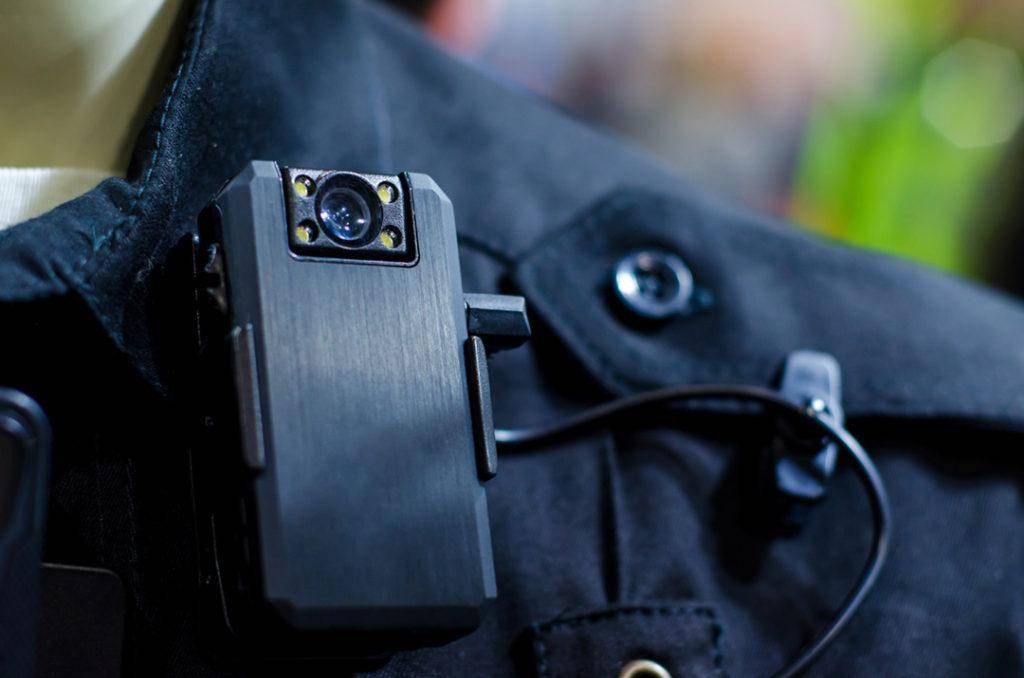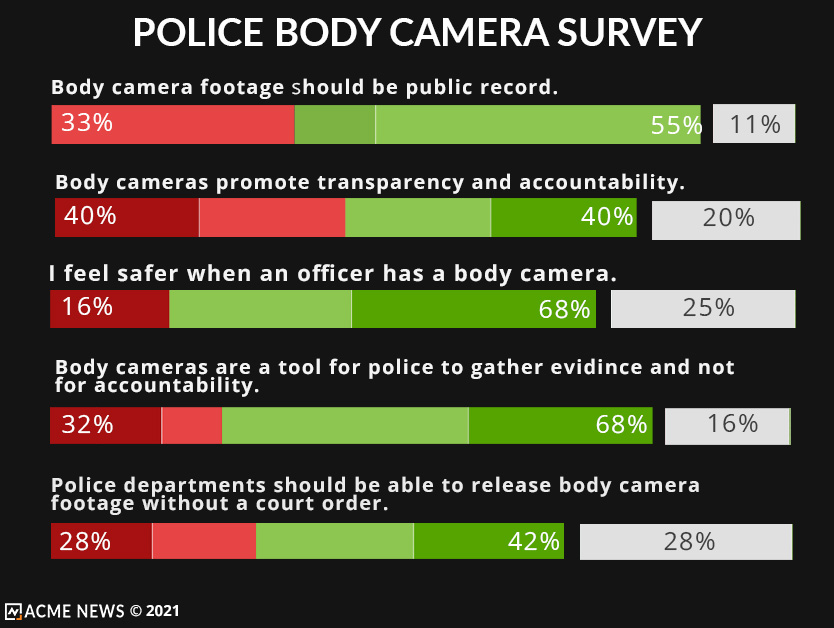
Key Findings from the Police Body Camera Survey:
- 55% support making body camera footage public, while 33% oppose it.
- 40% agree body cameras promote transparency, with 40% disagreeing.
- 68% feel safer when officers wear body cameras.
- 68% believe body cameras are primarily tools for evidence gathering rather than accountability.
- 42% support allowing police departments to release footage without a court order.
A recent survey on police body cameras, conducted by Acme News, reveals varied public opinions regarding their use, impact on transparency, and role in law enforcement. The data showcases a spectrum of beliefs regarding how body camera footage should be handled and whether such devices enhance public safety.
This survey, conducted by Acme News in 2021, sheds light on the public’s perspective on the evolving use of police body cameras in law enforcement.

One key finding shows that 55% of respondents believe body camera footage should be made public, while 33% disagree, and 11% remain undecided. This indicates a general preference for transparency, but a sizable portion of the population is hesitant about unrestricted public access to footage.
When asked if body cameras promote transparency and accountability, opinions were split: 40% agreed, 40% disagreed, and 20% were unsure. This even division suggests ongoing debates about the actual efficacy of body cameras in ensuring police accountability.
The survey also touched on public safety perceptions. An overwhelming 68% of participants said they feel safer when an officer is wearing a body camera, while only 16% disagreed. This strong majority underscores the potential for body cameras to bolster trust in law enforcement interactions.
However, when asked whether body cameras are primarily a tool for police to gather evidence rather than enhance accountability, 68% agreed. This view contrasts with the more divided opinion on whether cameras truly promote transparency, indicating that many see body cameras as serving law enforcement needs rather than the public’s demand for oversight.
Finally, 42% of respondents believe police departments should have the ability to release body camera footage without a court order, while 28% opposed the idea, and 28% were neutral. This reflects a moderate level of support for flexibility in handling footage, though nearly a third of respondents remain concerned about privacy or legal implications.
Overall, the survey highlights ongoing public debate about body cameras in policing. While many agree that they enhance public safety and provide valuable evidence, there are mixed feelings about their role in promoting transparency and how access to the footage should be managed.
###

